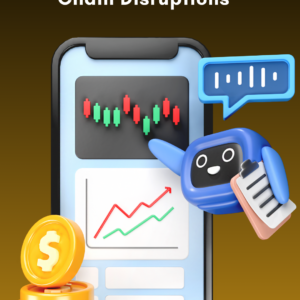1. Decision-Making Process for USB-C Related IPs and SOCs
a. OEM Involvement
-
- Scenarios where OEMs directly influence selection
- OEM-specific requirements and customizations
- Long-term partnership strategies with semiconductor vendors
b. ODM Role
-
- Typical decision-making authority of ODMs
- Factors influencing ODM choices (cost, performance, integration)
- Collaboration between OEMs and ODMs in selection process
c. Influencing Factors
-
- Technical specifications and performance requirements
- Compatibility with existing systems and future roadmaps
- Cost considerations and volume projections
- Time-to-market pressures
2. USB-C Ecosystem Product Range
a. USB-C Controllers
-
- Host controllers
- Device controllers
- Dual-role controllers
b. Power Delivery (PD) Solutions
-
- PD controllers
- Power management ICs (PMICs)
- GaN-based power solutions
c. Multiplexers and Switches
-
- Protocol multiplexers
- High-speed switches for alternate modes
d. Retimers and Redrivers
-
- USB4 and Thunderbolt retimers
- Signal integrity solutions
e. Protection Devices
-
- ESD protection
- Overvoltage protection ICs
3. IP/SOC Vendor Landscape
a. Market Structure
-
- Major players in USB-C semiconductor space
- Market share distribution
- Specialization vs. full-portfolio providers
b. Consolidation Trends
-
- Recent mergers and acquisitions
- Vertical integration strategies
- Emerging players and potential disruptors
c. Competitive Differentiation
-
- Technological leadership areas
- IP portfolios and licensing strategies
- Integration capabilities and ecosystem partnerships
4. SOC vs. IP Purchasing Decisions
a. SOC Purchase Scenarios
-
- High-volume, standardized applications
- Need for turnkey solutions
- Time-to-market priority
- Limited in-house design capabilities
b. IP Purchase Scenarios
-
- Custom or highly specialized applications
- Integration into larger, proprietary designs
- Desire for differentiation and control
- Strong in-house design teams
c. Hybrid Approaches
-
- Partial IP integration with off-the-shelf components
- Collaborative development with semiconductor vendors
5. Typical Contract Structures
a. Licensing Models
-
- Per-unit royalties
- One-time licensing fees
- Subscription-based access to IP portfolios
b. Volume-Based Agreements
-
- Tiered pricing structures
- Minimum order quantities
- Long-term supply agreements
c. Support and Maintenance
-
- Engineering support services
- Updates and upgrades policies
- Training and documentation provisions
d. Exclusivity and Market Protection
-
- Exclusive licensing arrangements
- Geographic or application-specific restrictions
- Cross-licensing agreements
6. Market Trends and Future Outlook
a. Technological Advancements
-
- USB4 and beyond
- Integration with other high-speed interfaces
- Power delivery innovations
b. Industry Shifts
-
- Impact of device miniaturization
- Automotive and industrial adoption of USB-C
- Sustainability and energy efficiency focus
c. Regulatory Influences
-
- Standardization efforts and their impact
- Environmental regulations affecting design choices
- Data security and privacy considerations in USB-C implementations
7. Challenges and Opportunities
a. Technical Challenges
-
- Signal integrity at higher speeds
- Power management in compact designs
- Ensuring interoperability across the ecosystem
b. Market Challenges
-
- Price pressures and commoditization
- Rapid technological changes
- Managing inventory in a fast-evolving market
c. Opportunities
-
- Expansion into new device categories
- Value-added features (security, diagnostics)
- Integration with wireless charging technologies
8. Case Studies (Generalized)
-
- Successful collaborations between OEMs and semiconductor vendors
- Innovative USB-C implementations in various industries
- Challenges overcome in adopting new USB-C technologies
9. Strategic Recommendations
-
- Key considerations for companies entering the USB-C semiconductor market
- Best practices in IP and SOC selection for OEMs and ODMs
- Long-term strategies for staying competitive in the USB-C ecosystem
10. Conclusion
-
- Summary of key insights on USB-C semiconductor market dynamics
- Critical success factors for various stakeholders in the ecosystem
11. Appendices
-
- Glossary of USB-C and semiconductor terms
- Comparison of major USB-C standards and specifications
- Decision tree for IP vs. SOC selection
#USBC #Semiconductors #OEMs #ODMs #PowerDelivery #SOCvsIP #SemiconductorEcosystem #USBCEcosystem #HighSpeedInterfaces #USB4 #PowerManagement #GaNSolutions #Retimers #SignalIntegrity #IPLicensing #SOCPurchasing #SemiconductorTrends #TechAdvancements






